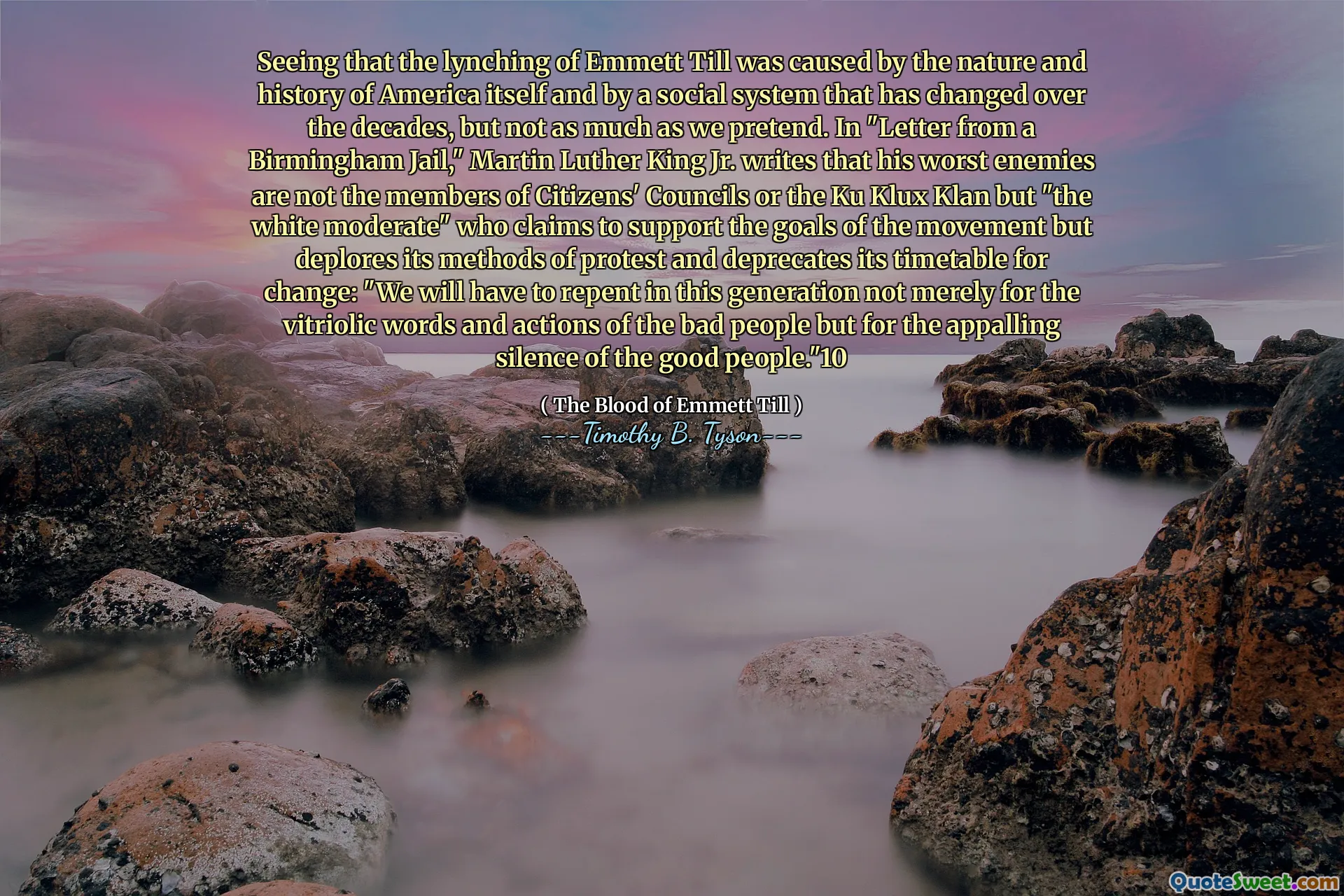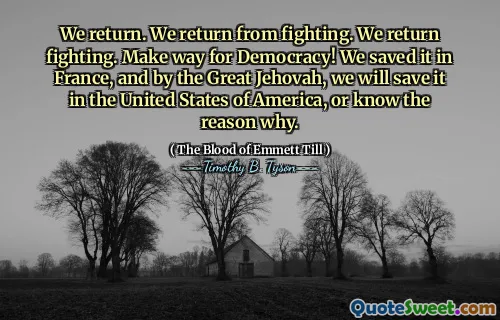
Seeing that the lynching of Emmett Till was caused by the nature and history of America itself and by a social system that has changed over the decades, but not as much as we pretend. In "Letter from a Birmingham Jail," Martin Luther King Jr. writes that his worst enemies are not the members of Citizens' Councils or the Ku Klux Klan but "the white moderate" who claims to support the goals of the movement but deplores its methods of protest and deprecates its timetable for change: "We will have to repent in this generation not merely for the vitriolic words and actions of the bad people but for the appalling silence of the good people."10
**This quote highlights the uncomfortable truth about racial injustice in America, illustrating that systemic oppression is deeply rooted in the country's history and social structures. The brutal lynching of Emmett Till serves as a stark reminder that racism was not an anomaly but woven into the fabric of the nation. It emphasizes that progress has been made over the decades, yet these advancements often fall short of genuine transformation. The reference to Martin Luther King Jr.'s message in "Letter from a Birmingham Jail" underscores the peril of silence and complacency among so-called allies—those who might outwardly support equality but quietly uphold the status quo through inaction. King's critique of the 'white moderate' exposes a paradox: they sympathize with the cause but hinder real change by preferring order over justice or criticizing methods of protest. This suggests that societal change requires more than passive approval; it demands active engagement and moral courage. Reflecting on this, one recognizes the importance of challenging complacency and recognizing that the fight against injustice is ongoing and requires unwavering commitment. It reminds us to confront where we might be silent or inactive, understanding that such silence can perpetuate harm. Combating racial injustice necessitates recognizing our collective responsibility and actively supporting movements for change, not just supporting them in words but through meaningful actions. Thus, this quote pushes us to examine our own roles and urges us to stand against the injustices rooted in systemic and historical disparities. It calls for moral reflection and proactive engagement, essential for fostering true progress in society. ( The Blood of Emmett Till ) - author: ---Timothy B. Tyson---







